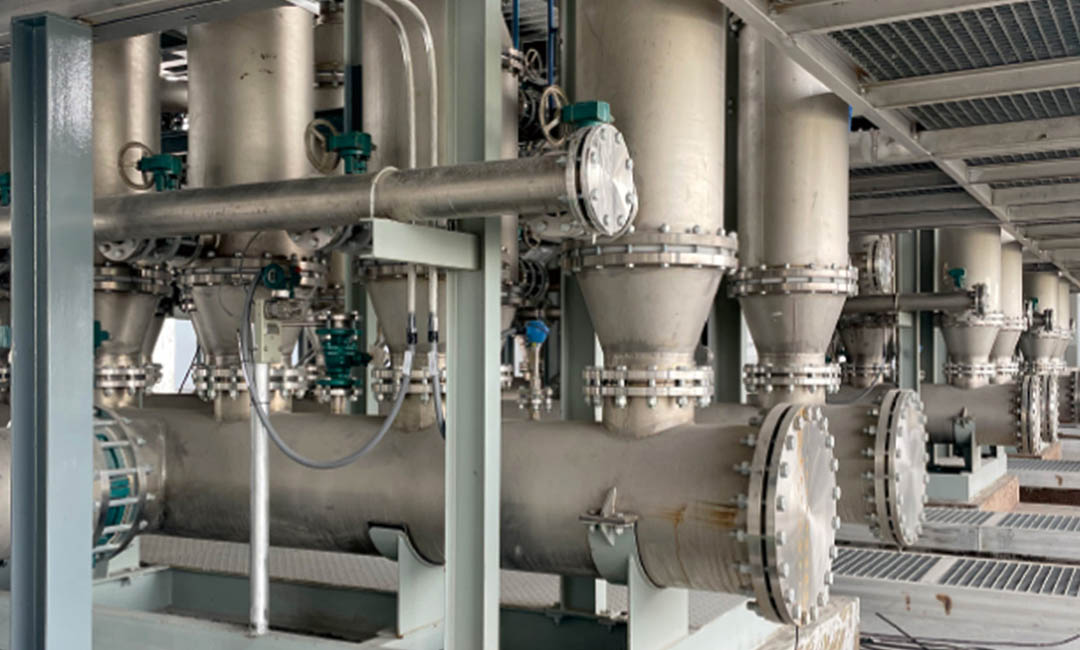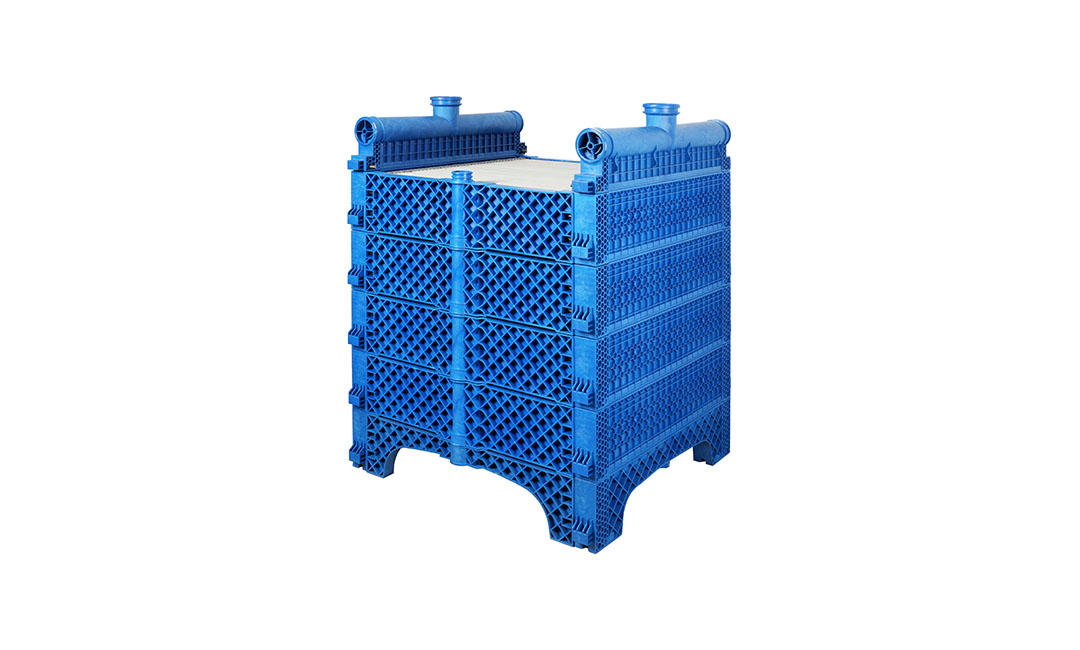Advantages of Using Ceramic Silicon Carbide Membranes for Filtration
Ceramic Silicon Carbide Membranes: A Durable Solution for Filtration
Advantages of Using Ceramic Silicon Carbide Membranes for Filtration

When it comes to filtration, finding a durable and efficient solution is crucial. Ceramic Silicon Carbide (SiC) membranes have emerged as a reliable option for various filtration applications. These membranes offer several advantages over traditional filtration methods, making them an attractive choice for industries ranging from water treatment to pharmaceuticals.
One of the key advantages of using Ceramic SiC membranes is their exceptional durability. Unlike other materials, such as polymers or metals, SiC membranes can withstand harsh operating conditions without compromising their performance. This durability is due to the unique properties of SiC, which include high mechanical strength, chemical resistance, and thermal stability. As a result, these membranes can handle high temperatures, corrosive chemicals, and abrasive particles, making them suitable for demanding filtration processes.
Another advantage of Ceramic SiC membranes is their high permeability. These membranes have a unique pore structure that allows for efficient filtration while maintaining a high flow rate. The interconnected pores in SiC membranes provide a large surface area for filtration, enabling the removal of particles as small as a few nanometers. This high permeability ensures that the filtration process is both effective and efficient, reducing the need for multiple filtration steps and minimizing energy consumption.
In addition to their durability and high permeability, Ceramic SiC membranes offer excellent fouling resistance. Fouling, the accumulation of particles or substances on the membrane surface, is a common issue in filtration processes. It can lead to reduced flow rates, increased pressure drop, and decreased membrane lifespan. However, SiC membranes have a unique surface chemistry that repels foulants, preventing their adhesion and minimizing fouling. This fouling resistance not only improves the longevity of the membranes but also reduces the need for frequent cleaning and maintenance, resulting in cost savings for industries.
Furthermore, Ceramic SiC membranes are compatible with a wide range of fluids and can be used in various filtration applications. Whether it is water treatment, wastewater treatment, desalination, or pharmaceutical filtration, SiC membranes can deliver reliable and consistent results. Their chemical resistance allows them to handle aggressive chemicals, while their high temperature stability makes them suitable for applications requiring thermal treatment. This versatility makes Ceramic SiC membranes a preferred choice for industries looking for a single filtration solution that can meet their diverse needs.
Lastly, Ceramic SiC membranes are environmentally friendly. Unlike traditional filtration methods that rely on disposable filters, SiC membranes can be cleaned and reused multiple times. This not only reduces waste generation but also lowers the overall cost of filtration. Additionally, SiC membranes have a long lifespan, further minimizing their environmental impact. By choosing Ceramic SiC membranes, industries can contribute to sustainable practices while ensuring efficient filtration.
In conclusion, Ceramic Silicon Carbide membranes offer several advantages for filtration applications. Their exceptional durability, high permeability, fouling resistance, compatibility with various fluids, and environmental friendliness make them a reliable and cost-effective solution. As industries continue to prioritize efficient and sustainable filtration processes, Ceramic SiC membranes are likely to play a significant role in meeting these demands.
Applications of Ceramic Silicon Carbide Membranes in Various Industries
Ceramic silicon carbide membranes have emerged as a durable solution for filtration in various industries due to their exceptional properties and performance. These membranes are made from a combination of silicon and carbon, resulting in a material that is highly resistant to corrosion, abrasion, and extreme temperatures. This makes them ideal for applications where traditional filtration methods may not be sufficient.
One of the key industries that have benefited from the use of ceramic silicon carbide membranes is the water treatment industry. These membranes are capable of filtering out even the smallest particles and contaminants, making them highly effective in removing impurities from water. This is crucial for ensuring the safety and quality of drinking water, as well as for treating wastewater before it is released back into the environment.
In the pharmaceutical industry, ceramic silicon carbide membranes are used for the filtration of pharmaceutical products and processes. These membranes are able to withstand the harsh chemicals and high temperatures often used in pharmaceutical manufacturing, making them a reliable and long-lasting filtration solution. This is essential for ensuring the purity and quality of pharmaceutical products, as well as for meeting regulatory standards.
Another industry that has seen the benefits of ceramic silicon carbide membranes is the food and beverage industry. These membranes are used for the filtration of beverages, such as wine, beer, and fruit juices, as well as for the clarification of food products. The durability and efficiency of these membranes make them an ideal choice for ensuring the quality and safety of food and beverage products, while also improving production processes.
In the oil and gas industry, ceramic silicon carbide membranes are used for the filtration of produced water and wastewater from drilling operations. These membranes are able to withstand the harsh conditions and high pressures found in oil and gas production, making them a reliable and cost-effective solution for treating wastewater. This is essential for protecting the environment and ensuring compliance with regulations.
The chemical industry also benefits from the use of ceramic silicon carbide membranes for filtration applications. These membranes are used for the separation and purification of chemicals and solvents, as well as for the removal of impurities from process streams. The high chemical resistance and durability of these membranes make them a valuable asset for chemical manufacturers looking to improve the efficiency and reliability of their processes.
Overall, ceramic silicon carbide membranes offer a durable and reliable solution for filtration in a wide range of industries. Their exceptional properties make them ideal for applications where traditional filtration methods may fall short, providing a cost-effective and long-lasting solution for ensuring the quality and safety of products and processes. As technology continues to advance, ceramic silicon carbide membranes are likely to play an increasingly important role in filtration applications across various industries.
Maintenance and Cleaning Tips for Ceramic Silicon Carbide Membranes
Ceramic silicon carbide membranes have become a popular choice for filtration in various industries due to their durability and efficiency. These membranes are known for their high mechanical strength, chemical resistance, and thermal stability, making them ideal for demanding filtration applications. However, like any filtration system, ceramic silicon carbide membranes require proper maintenance and cleaning to ensure optimal performance and longevity.
One of the key maintenance tips for ceramic silicon carbide membranes is regular inspection. It is important to visually inspect the membranes for any signs of damage, such as cracks, chips, or fouling. Any damage to the membranes can compromise their filtration efficiency and lead to costly repairs or replacements. By conducting regular inspections, any issues can be identified and addressed promptly, ensuring the membranes continue to function effectively.
In addition to visual inspections, it is also important to monitor the operating conditions of the filtration system. This includes monitoring the pressure, flow rate, and temperature of the feed water. Any fluctuations in these parameters can impact the performance of the membranes and may indicate the need for adjustments or maintenance. By keeping a close eye on the operating conditions, potential issues can be identified early on and addressed before they escalate.
Another important maintenance tip for ceramic silicon carbide membranes is proper cleaning. Over time, membranes can become fouled with contaminants, such as dirt, debris, or biological matter, which can reduce their filtration efficiency. Regular cleaning is essential to remove these contaminants and restore the membranes to their optimal performance.
When cleaning ceramic silicon carbide membranes, it is important to use the appropriate cleaning solutions and techniques. Harsh chemicals or abrasive cleaning methods can damage the membranes and reduce their lifespan. Instead, it is recommended to use mild cleaning agents and gentle cleaning techniques to ensure the membranes are cleaned effectively without causing any damage.

One common method for cleaning ceramic silicon carbide membranes is backwashing. Backwashing involves reversing the flow of water through the membranes to dislodge and remove any accumulated contaminants. This process helps to restore the membranes to their original condition and improve their filtration efficiency. Regular backwashing can help prevent fouling and prolong the lifespan of the membranes.
In addition to backwashing, periodic chemical cleaning may also be necessary to remove stubborn contaminants or biofilms from the membranes. It is important to follow the manufacturer’s guidelines for chemical cleaning and ensure that the cleaning solution is compatible with the membranes. Proper rinsing after chemical cleaning is essential to remove any residual cleaning agents and prevent contamination of the feed water.
Overall, proper maintenance and cleaning are essential for ensuring the optimal performance and longevity of ceramic silicon carbide membranes. By conducting regular inspections, monitoring operating conditions, and implementing appropriate cleaning techniques, these membranes can continue to provide efficient and reliable filtration for a wide range of applications. With the right maintenance practices in place, ceramic silicon carbide membranes can offer a durable and cost-effective solution for filtration needs.

